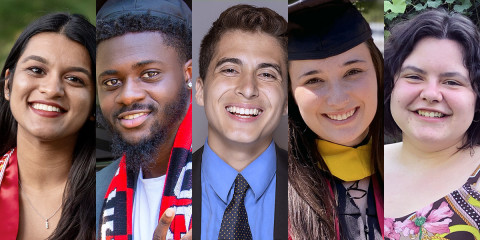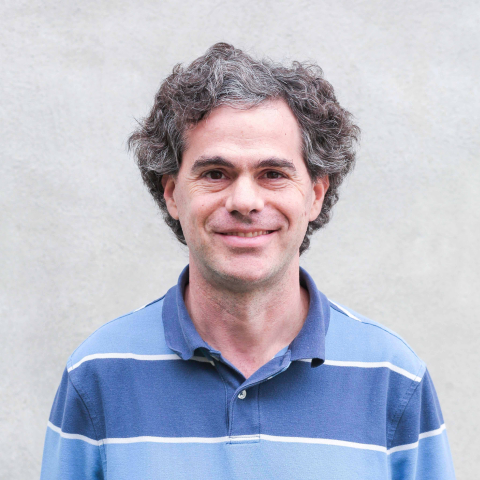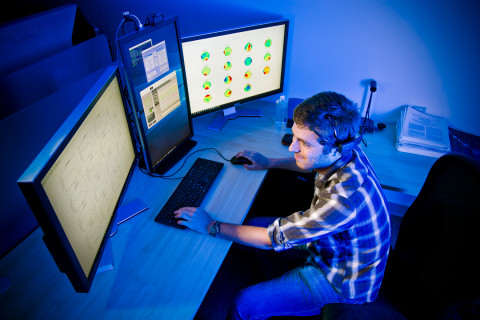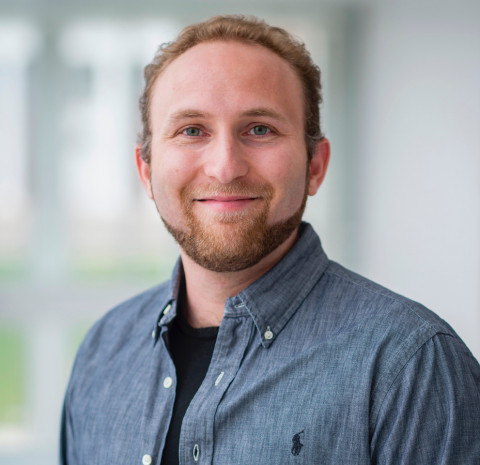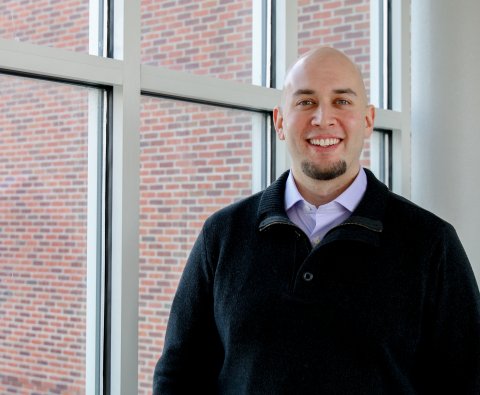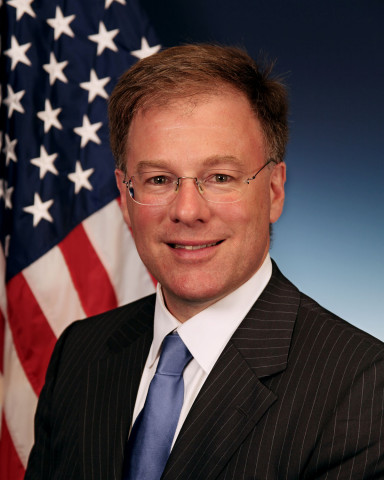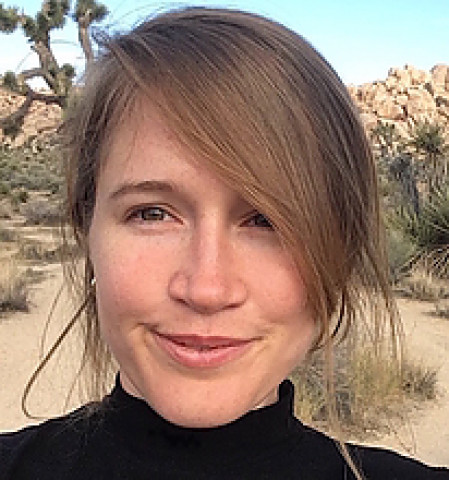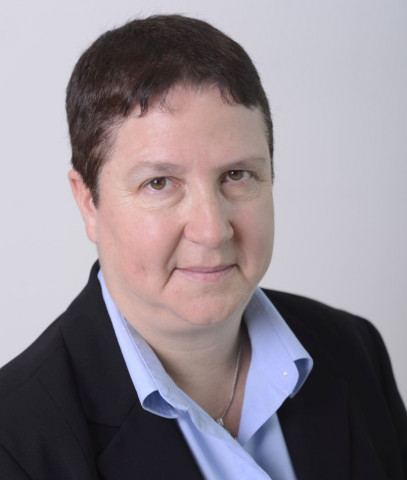Recent News & Accomplishments
2021
Students took advantage of on- and off-campus resources to advance their careers
An internship can launch a career — at least that’s what several computer science majors who graduated from the University of Maryland in May learned from experience. Gesna Aggarwal entered her senior year with a job offer from Microsoft in hand after interning with the company in summer 2020. Though her internship was virtual, she forged connections with her team at Microsoft that led her supervisor to recommend her for a full-time job. And she’s not the only one. According to UMD’s 2020 Graduation Survey Report, 41% of computer science graduates reported finding employment through... read more
Daniel Gottesman joined the University of Maryland's Department of Computer Science and Institute for Advanced Computer Studies (UMIACS) on July 1, 2021, as the Brin Family Endowed Professor in Theoretical Computer Science. He joined UMD from the Perimeter Institute in Waterloo, Canada. “I'm excited to join the team at the University of Maryland working on quantum information,” said Gottesman, who also has an appointment in the Joint Center for Quantum Information and Computer Science (QuICS) as a QuICS Fellow. “Maryland was already a powerhouse in quantum information and some fabulous new... read more
Eric Krokos ’13, M.S. ’15, Ph.D. ’18 was part of a UMD team that used electroencephalography (EEG) to better understand and work toward solutions for VR-induced discomfort.
If a virtual world has ever left you feeling nauseous or disorientated, you’re familiar with cybersickness, and you’re hardly alone. The intensity of virtual reality (VR)—whether that’s standing on the edge of a waterfall in Yosemite or engaging in tank combat with your friends —creates a stomach-churning challenge for 30-80% of users. In a first-of-its kind study, researchers at the University of Maryland recorded VR users’ brain activity using electroencephalography (EEG) to better understand and work toward solutions to prevent cybersickness. The research was conducted by computer science... read more
A University of Maryland expert in programming languages has received a National Science Foundation (NSF) award to advance the development and maintenance of large and evolving software verification projects that use proof assistants.
Proof assistants are software tools to assist in proofs—formal verification—of complex mathematical equations used in computing. Leonidas Lampropoulos , an assistant professor of computer science with an appointment in the University of Maryland Institute for Advanced Computer Studies (UMIACS), is co-principal investigator of the $540K award . The funding comes from the NSF’s Division of Computing and Communication Foundations. Currently, the use of software with machine-checked proofs for correctness is reaching an unprecedented scale. Verified software is increasingly used in critical... read more
Professor Matthias Zwicker has been appointed chair of the University of Maryland’s Department of Computer Science for a three-year term, effective July 1, 2021. He has been serving as interim chair for the past year. “Matthias stepped up to lead the department during a global pandemic, and he was still able to push the department forward over the past year, due to his administrative expertise and calm temperament,” said Amitabh Varshney , dean of the College of Computer, Mathematical, and Natural Sciences . “Faculty, staff and students strongly supported Matthias’ continued leadership of the... read more
A University of Maryland expert on network security has been chosen to serve on a national forum focused on emerging critical challenges to the nation’s IT infrastructure.
Dave Levin , an assistant professor of computer science and core faculty member in the Maryland Cybersecurity Center , will join 23 other scientists and policy experts serving on the Forum on Cyber Resilience . The forum—managed by the National Academies of Sciences, Engineering and Medicine—brings together scientists, practitioners and policymakers to address a suite of issues related to cyber resilience, including the strength and vitality of the U.S. information and communications infrastructure. Through public meetings, workshops and published reports, the forum disseminates valuable... read more
The Computing Community Consortium Council aims to encourage innovative and high-impact research.
Professor William “Bill” Regli was recently appointed as a member of the Computing Community Consortium (CCC) Council effective July 1, 2021. He joins a group of 5 new members appointed by the Computing Research Association (CRA), in consultation with the National Science Foundation (NSF). The CCC Council is a twenty member consortium bringing together expertise in diverse areas of computing to contribute in leading CCC’s visioning programs, and conceptualise and enable ideas for future computing research. "I'm honored to contribute to CCC and to help advocate for the computing research... read more
Perhaps the most iconic image in evolutionary biology is Charles Darwin's sketch of an evolutionary tree . The illustration highlights Darwin’s transformational idea that the evolutionary relationships among species can be depicted through a branching pattern, a concept known as the Tree of Life. While Darwin primarily relied on the physical characteristics shared by subsets of species to determine an evolutionary tree’s structure, scientists today are using vast amounts of genomic data to reconstruct evolutionary trees—a field known as phylogenetics. Erin Molloy , who joins the University of... read more
The award supports research to improve computational models used to simulate the human perception of auditory signals.
Two spatial audio experts at the University of Maryland were recently awarded $270K in research funding from Facebook Reality Labs —the social media giant’s research and development division focused on virtual and augmented reality software and hardware. Nail Gumerov , a senior research scientist in the University of Maryland Institute for Advanced Computer Studies , and Ramani Duraiswami , a professor of computer science, will use the funding to better model and troubleshoot 2D and 3D audio technologies. Their efforts will be focused on improving mathematical models to calculate the Head... read more
Alumna Aya Soffer’s game-changing success story at IBM
On February 11, 2019, 800 people gathered at San Francisco’s Yerba Buena Center for the Arts to witness an event that might have seemed like science fiction 20 years earlier: a debate between world champion debater Harish Natarajan and IBM’s Project Debater, an artificial intelligence (AI) system designed to take on complex topics and compete with humans in a live war of words. Offstage, Aya Soffer (M.S. ’92, Ph.D. ’95, computer science) watched the event unfold like a nervous parent. As vice president for AI tech at IBM, she was a leader on the team that made Project Debater a reality. “I... read more
